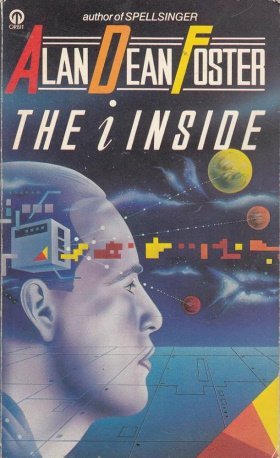“I don’t know.”
Oristano tried again, a little desperate now. “How will the threat manifest itself?”
“I don’t know, Martin.” There was just a hint of sadness in the synthesized voice.
Oristano started to rise from the chair. “I think it’s time to call in the general staff.”
“No, Martin. Not yet.”
He hesitated, half in and half out of the chair. Thanks to regular workouts in the gym, daily swims, occasional frigid dips in Lake Lucerne, and good genes, he was in excellent physical condition. It was rare when he was conscious of his age. Now he was.
He forced himself to ease back into the chair. “You tell me there’s a threat to you and to the human race.”
“Yes,” said the Colligatarch.
“But you don’t know the nature of the threat, its origin, or how it will manifest itself?”
“That is true.”
“And you still think there’s no reason for me to call a staff meeting?”
“That is correct also. Have patience, Martin.”
“You must have some data on this threat, otherwise you cannot have concluded that there is a threat.”
“I’m sorry, Martin. I have no hard data to pass along to you at this point. I must ask, however, that you accept my evaluation. I intuit the threat.”
I intuit. Oristano sat and considered the machine’s words thoughtfully. There was no question that the Colligatarch possessed a consciousness, though its relationship to human consciousness was still a matter of considerable debate among theologians and philosophers as well as physicists and cyberneticists. When asked, the machine itself reacted ambiguously to the question, unable to produce anything more profound by way of reply than I intuit, therefore I am. While catchy, it was not an acceptable last word on the subject.
Certainly Oristano, who was intimately familiar with the kilometers of microcircuitry and molecular memories should know better than anyone else what the machine was capable of. But he hadn’t worried about it much. He was far more concerned with the machine’s morality. Of that he was confident.
He sat quietly until the initial impact of the machine’s words had faded and his heart had slowed. “Would I be right in assuming this danger is not imminent?”
“You would be. It is close, but we have time enough to cope.”
“How? How do you expect me to deal with a threat when you can’t identify its nature, source, or perpetrators?’ ’
“You humans and your obsession with time. Remember that when I speak of time, my frame of reference differs considerably from your own.”
“Don’t lecture me.”
“I would not presume to. I merely remind you that when I say there is time enough to cope, that should be sufficient to reassure you.”
It would, Oristano thought, if not for that succession of “I don’t knows.”
He called out to his right. “Another cup, please.”
“Bavarian mocha?” the subunit inquired.
“No, not this time. Turkish, as strong and caffeine-heavy as you can make it.”
“Yes sir.”
“This threat," said the Colligatarch, “appears devious beyond imagining and clever beyond conception. I am not sure that its perpetrators are conscious of just how clever they’ve been. This may be intentional on their part, an attempt to confuse us.”
“There’s more than one person behind it, then.”
“Considerably more, I should say. The complexity is formidable. They have designed a threat so subtle its parameters may not be obvious to its creators. There is a certain elegant logic to it. If they themselves cannot predict for certain how the threat will make itself known, neither can I or any of the security organizations which shield me.”
“It seems to me that if you can assume that much, you ought to have some specifics.”
“I wish simple deductive reasoning were enough to pull the mask from the face of the threat, Martin, but in this instance, such is not the case.”
Oristano rubbed a forefinger across his lips, his mind working overtime. If the nature of the threat was too complex, or too obscure, for the Colligatarch to see through it as yet, there was no point in trying to force the issue.
He felt quite helpless. Deprivation of information always made him feel that way. He wondered if the Colligatarch felt the same way. Emotions had been programmed into it in order to enable it to better understand the humans it served, but he couldn’t remember if anxiety was among them.
“What would you have me do?”
“Exercise the patience for which you are famed among your colleagues, Martin. Be patient, and wait. Meanwhile, there is other work we must attend to. People depend on us every day for food, for health, for peace. Not only must we give the appearance of everything’s being normal, we must make everything normal.”
“Which is why you don’t want me to call a meeting of the staff?”
“One reason, yes. They are a brilliant group, one or two in their way more brilliant even than yourself, though without your administrative abilities. And none are as comfortable with me as you are, Martin.”
He nodded, wondering who the “more brilliant” ones on the staff might be. MacReady? No, surely not him. Novotski? Perhaps.
His thoughts were wandering, and that wasn’t good. “You have to understand that it’s hard for me to go on as if everything is normal, given the statement you’ve just made.”

























